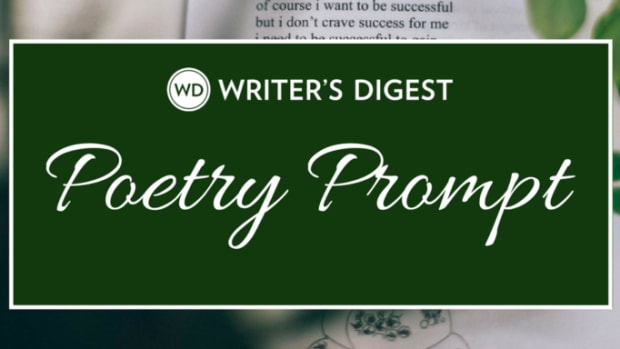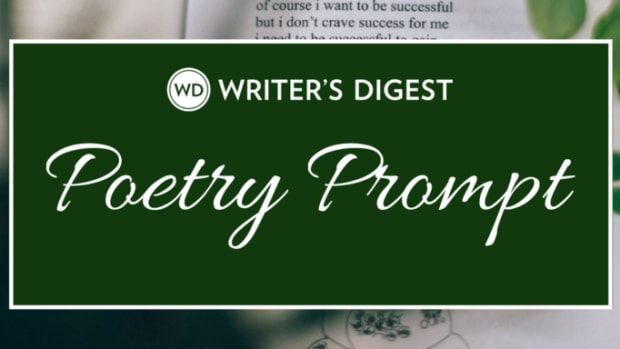If you’ve ever dreamed of writing a novel that not only captivates readers but also has the potential to sell in the market, then this comprehensive guide is for you. In just five simple steps, you’ll learn the secrets to crafting a novel that stands out from the rest. The first step? Reading. Yes, before you even put pen to paper (or fingers to keyboard), immerse yourself in the works of other writers. This not only hones your writing skills but also gives you a deeper understanding of the market. Next, we’ll explore writing for the market and how to tailor your story to what publishers are seeking. But don’t forget about writing for yourself – staying true to your own style and interests is crucial. And of course, no novel is complete without learning the craft of writing itself. Study, practice, and improve your skills. Lastly, we’ll tackle the essential task of revising and editing, ensuring that your novel is polished and ready for the market. So, let’s embark on this journey together and unlock the secrets to writing a novel that sells.
Get Your Comprehensive Guide Now
Step 1: Reading Before You Write
The importance of reading
Before you begin writing your own novel, it’s crucial to spend time reading a variety of books. Reading allows you to immerse yourself in different writing styles, understand the intricacies of storytelling, and expand your vocabulary. By engaging with the work of other writers, you can gain valuable insights and inspiration that will enhance your own writing.
Reading to improve writing skills
One of the main benefits of reading is that it helps improve your writing skills. As you read different genres and authors, you’ll notice the techniques they use to create compelling characters, build suspense, or develop a unique writing voice. Pay attention to the structure of the novels, the way dialogue is crafted, and the pacing of the story. This exposure to various writing styles will broaden your understanding of what works well in storytelling and assist you in sharpening your own writing skills.
Gaining market understanding through reading
In addition to improving your craft, reading extensively also provides you with a deeper understanding of the market. By exploring books within your chosen genre, you can gain insights into what types of stories are popular and what readers are looking for. This market understanding will be valuable when it comes time to write your own novel, as it allows you to tailor your work to meet the expectations and preferences of publishers and readers.

Unlock The Secrets Of Writing A Bestselling Novel
Step 2: Writing for the Market
Understanding the market
Writing for the market involves being aware of the current trends, preferences, and demands of the publishing industry. It’s important to stay updated with the latest bestsellers, upcoming releases, and industry news to get a sense of what’s popular in the market. Understanding the market ensures that your novel aligns with reader expectations, increasing its chances of finding a receptive audience.
Identifying what publishers are looking for
To increase your chances of success in the publishing world, it’s essential to identify what publishers are looking for in a novel. Research different publishers and study their submission guidelines. Take note of the specific genres or themes they are interested in, as well as any preferences they may have when it comes to word count or writing style. Tailoring your novel to meet these preferences can greatly improve its chances of being accepted.
Following genre conventions
Each genre has conventions and expectations that readers have come to anticipate. To write for the market, it’s crucial to familiarize yourself with these genre conventions and incorporate them into your novel. Whether it’s the tropes and archetypes of a particular genre or the expected pacing and structure, following these conventions will create a sense of familiarity and comfort for readers, making your novel more appealing to publishers in the market.

Buy Your Step-by-Step Novel Writing Guide
Step 3: Writing for Yourself
Writing what you love to read
While it’s important to consider the market and publisher preferences, writing for yourself ultimately means writing what you love to read. Choosing a genre or theme that you are passionate about ensures that you’ll stay motivated and engaged throughout the writing process. By writing what you love, you’ll be better equipped to infuse your work with authenticity and genuine emotion, making it more likely to resonate with readers.
Staying true to your own style and interests
Writing for yourself also means staying true to your own writing style and interests. Each writer has a unique voice and perspective, and it’s important to embrace and cultivate that individuality in your work. Avoid imitating other writers or trying to fit into a specific mold. Instead, focus on developing your own voice and writing in a manner that feels natural and authentic to you. This authenticity will shine through in your novel and make it stand out in a market saturated with similar stories.
Balancing personal satisfaction and market appeal
While writing for yourself is important, it’s also crucial to find a balance between personal satisfaction and market appeal. Yes, you want to write what you love, but you also want your novel to reach readers and achieve commercial success. Striking a balance between your creative vision and the demands of the market can be challenging but essential. Consider incorporating elements that both fulfill your personal vision and cater to the expectations of the target market. This way, you can create a novel that you are proud of while also increasing its potential for wide readership.

Step 4: Learning How to Write
Studying the craft of writing
Learning how to write effectively involves studying the craft of writing. Just like any other skill, writing requires practice and continuous learning. Take the time to invest in books, online courses, or workshops that focus on the fundamentals of storytelling, character development, plot structure, and other essential elements of writing. By studying the works of renowned authors and analyzing their techniques, you can gain valuable insights and hone your own writing skills.
Improving writing skills through practice
While studying the craft is important, the real improvement comes through practice. Make writing a daily habit and challenge yourself to stretch your creative muscles. Write short stories, poetry, or journal entries to experiment with different styles and genres. The more you write, the better you’ll become at crafting engaging narratives, developing compelling characters, and creating vivid descriptions. Embrace the growth mindset and continuously push yourself to improve as a writer.
Seeking feedback and learning from critiques
Another effective way to learn how to write is by seeking feedback and learning from critiques. Join writing communities, workshops, or find critique partners who can provide constructive feedback on your work. Be open to receiving suggestions and suggestions for improvement, as this feedback can help you identify blind spots and refine your writing. Utilize this feedback as a learning opportunity and incorporate it into your future writing endeavors.
Exploring different writing techniques
Writing is an art form that offers endless possibilities for experimentation. As you continue to learn how to write, don’t be afraid to explore different writing techniques. Experiment with different points of view, narrative structures, or literary devices to add depth and complexity to your work. Trying new techniques will not only broaden your writing skills but also add a unique flair to your storytelling that sets your novel apart.

Step 5: Revising and Editing Your Work
The importance of revision and editing
Once you have completed your first draft, the journey is far from over. The next step is revising and editing your work—a crucial process to refine and polish your novel. Revision involves reevaluating the overall structure, pacing, and plot coherence, while editing focuses on refining the language, grammar, and syntax. This stage is essential to transform your rough draft into a marketable and well-crafted piece of literature.
Identifying and fixing plot holes and inconsistencies
During the revision process, it’s essential to identify and fix any plot holes or inconsistencies present in your story. Analyze the progression of events, character motivations, and the overall story arc. Look for logical gaps or contradictory information that may confuse readers. By addressing these issues, you ensure that your story flows smoothly and captivates readers from start to finish.
Strengthening character development
Great novels often have well-developed and compelling characters that readers can connect with on an emotional level. As you revise and edit, pay close attention to your characters. Ensure that their motivations, actions, and dialogue are consistent and authentic. Seek opportunities to deepen their characterization, add complexity, and evoke empathy from readers. Strong and relatable characters can make a significant impact on the success of your novel.
Improving pacing and narrative flow
Pacing and narrative flow are crucial elements that determine how engaged readers will be with your story. During the revision process, evaluate the pacing of the plot. Are there moments that drag on or feel rushed? Adjust the pacing to create tension, suspense, or moments of tranquility that enhance the overall reading experience. Additionally, pay attention to the flow of your narrative. Smooth transitions between scenes, coherent structure, and a balanced rhythm will keep readers invested and eager to turn the pages.
Polishing prose and checking for grammatical errors
In addition to the content and structure, the quality of your prose plays a significant role in the success of your novel. During the editing phase, focus on polishing your writing. Check for grammatical errors, typos, and inconsistencies in style and tone. Utilize editing tools, such as grammar checkers, or enlist the help of a professional editor, to ensure your prose is clean and error-free. A polished and well-written narrative will make a positive impression on agents, publishers, and ultimately readers.
Seeking professional editing
Finally, consider seeking professional editing to give your novel the best chance of success. While self-editing is essential, a fresh set of eyes can catch mistakes, offer insightful suggestions, and provide an objective perspective on your work. Hiring a professional editor can help you identify weaknesses, strengthen your storytelling, and ensure that your novel is of the highest quality before you embark on the journey of seeking publication.
By following these five steps—reading before you write, writing for the market, writing for yourself, learning how to write, and revising and editing your work—you’ll be well on your way to creating a novel that captures the attention of agents, publishers, and readers alike. Remember that writing is a journey, and each step plays a vital role in your growth as a writer. Embrace the process, stay committed, and let your passion for storytelling guide you towards success.
The 5 Steps to Writing a Novel That Sells: A Comprehensive Guide
